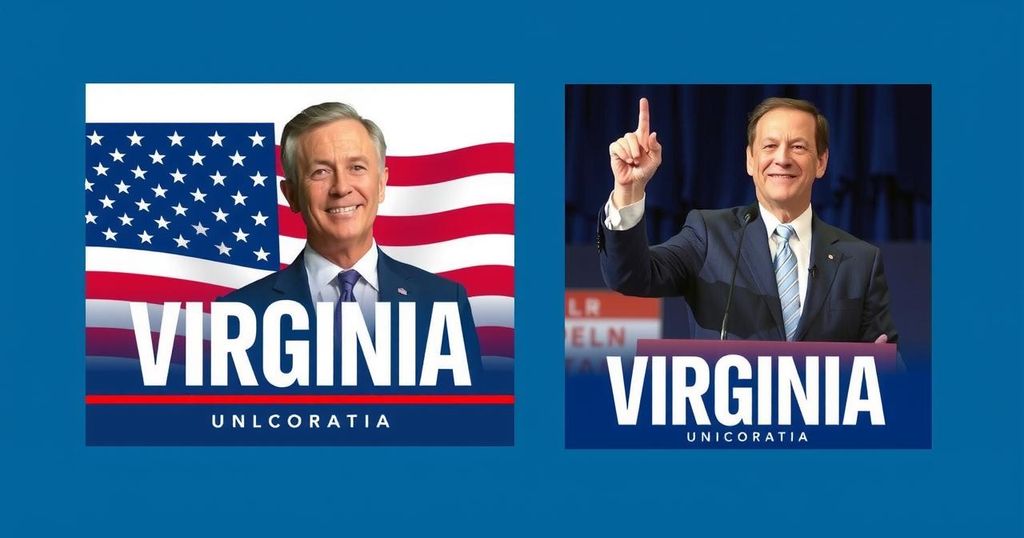Overview of the 2025 Virginia Gubernatorial Election and Voting Trends

The Virginia gubernatorial election, occurring on November 4, 2025, currently showcases Abigail Spanberger as the unopposed Democratic candidate, while Republicans face competition between Winsome Sears and Merle Rutledge. This election occurs against a backdrop of significant political trends, including Alaska’s retention of ranked-choice voting and a stark statistic related to recall elections, wherein only 16% of targeted officials were removed from office.
The upcoming Virginia gubernatorial election, set for November 4, 2025, features a unique political landscape, particularly in the state’s primaries. In Virginia, historical trends indicate minimal opposition in gubernatorial contests, with currently only three candidates declared—Abigail Spanberger for the Democrats and Winsome Sears and Merle Rutledge for the Republicans. Democrats, typically strong contenders, find Spanberger running unopposed, highlighting an unusual lack of competitive dynamics.
Abigail Spanberger, a former CIA officer and current representative of Virginia’s 7th Congressional District, is campaigning on vital issues, such as reducing childcare costs. Her focus addresses a pressing concern for families in Virginia, reflecting her commitment to practical policy change. Competing on the Republican side, Winsome Sears, the incumbent Lt. Governor, emphasizes the protection of the state’s right-to-work laws, underscoring her focus on employment incentives.
Historically, Virginia’s gubernatorial races have witnessed shifts between Democratic and Republican parties, a pattern expected to influence the forthcoming election. Democrats aim to reclaim the governorship, which they last held in 2022 under Ralph Northam, while Republicans seek a consecutive victory, marking the first such occurrence since 1997. The competitive nature of the primary field, particularly for the Republicans, juxtaposed against Spanberger’s unopposed status, sets the stage for a distinctive electoral process in Virginia.
Another significant event on the electoral landscape includes Alaska’s recent retention of ranked-choice voting (RCV), confirmed by a recount certifying a narrow victory by 743 votes. Opponents of RCV faced setbacks in several states, with restrictive measures to adopt RCV being rejected in Arizona, Colorado, Idaho, Nevada, and Oregon. Notably, the financial dynamics of these campaigns reflect considerable investment by RCV proponents, who spent over $66 million compared to a mere $3.3 million from opponents.
In terms of recall elections, findings from 2014 to 2023 indicate that only an average of 16% of officials targeted for recall were ultimately removed from their positions, underscoring the challenges in these efforts. This trend is likely to receive detailed exploration in Ballotpedia’s forthcoming annual Recall Analysis, reflective of ongoing political engagement across various states.
Meanwhile, the landscape of gubernatorial primaries and electoral measures suggests a continuing evolution in voter interests and campaign strategies, setting a crucial stage for the elections ahead.
As part of a broader electoral cycle, the Virginia gubernatorial election includes crucial primaries that will shape the upcoming election. Virginia has historically displayed a tendency towards low opposition in primaries, particularly in gubernatorial races, with previous elections often decided by narrow margins. The upcoming elections highlight the significance of party dynamics and the potential impact of candidate platforms, particularly as they pertain to pressing social issues such as childcare costs and employment laws. Concurrently, Alaska’s electoral decisions and recall measures across various states reflect an evolving political engagement among voters, emphasizing their stakes in governance.
In summary, the Virginia gubernatorial election highlights a potentially uncompetitive primary landscape for Democrats, with Spanberger standing unopposed, while Republicans face a tighter race between Sears and Rutledge. Moreover, Alaska’s retention of ranked-choice voting amid broader rejection across several other states indicates shifting voter preferences. With recall election dynamics revealing persistent challenges for targeted officials, the electoral milieu remains highly fluid as upcoming races draw closer, setting the stage for significant political discourse and engagement.
Original Source: news.ballotpedia.org






